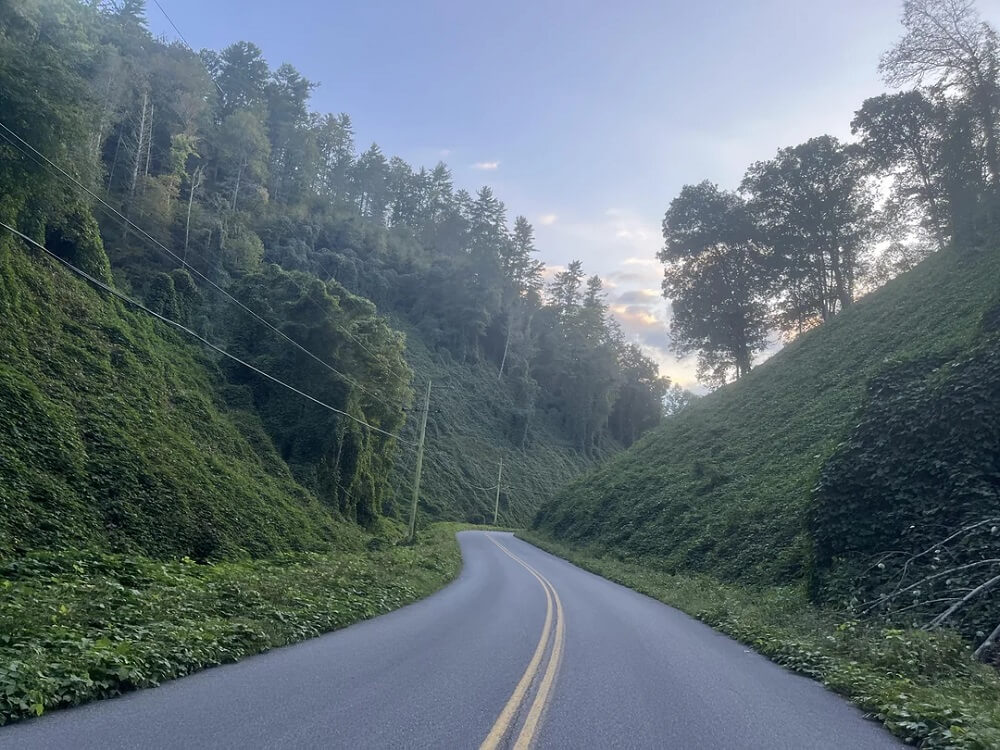In a recent Reddit post that has stirred the r/invasivespecies community, a traveler shared a photo of the infamous kudzu plant taking over the Tennessee mountains. At first glance, the snapshot looks pretty lovely, as the hillsides are blooming with green, but the Japanese vine has turned out to be quite the invasive species, killing other plants in its path.
"At some point someone thought, 'This will be good for erosion,'" the original poster said. "This is just a snapshot of kudzu taking over the Tennessee mountains. The county keeps it trimmed so that it doesn't jump the road and meet up with the other side." Sounds eerily like the cordyceps from The Last of Us.

Kudzu was originally brought to North Carolina in the 1800s to help farmers tackle erosion, per the News & Observer. However, the paper reports the vine "spreads like wildfire," ultimately taking over resources needed for other plants to survive. In hot, humid summer weather, kudzu can grow up to a foot per day. Scary.
Kudzu greatly impacts ecosystems, too. As it outcompetes native grasses and plants and blocks sunlight trees need to photosynthesize, it has ultimately altered habitats for insects and animals, which can lead to extinction and a loss of biodiversity. Biodiversity is essential for a healthy ecosystem. There is also fear that warming global temperatures could aid kudzu's ability to grow.
Fortunately, even if it's difficult to restore native grasses and plants once the soil has been disturbed, as one commenter pointed out, removing the invasive vines and reintroducing native species is possible. In addition to being better for local ecosystems and pollinators, native plants are less expensive to maintain, since they are adapted to their environments.
There are several ways to remove kudzu — some quicker than others. Finding and digging out the root crowns is the only sure way to stop the vine from returning, per the News & Observer. Constant mowing and even herbicides (although not recommended) can eventually weaken kudzu over time, but the process takes years.
An unexpected solution that may even be better for the environment? Goats. These mammal lawnmowers love eating vines, leaves and stems and can clear Kudzu in a few weeks, per the report. Ultimately, even though kudzu is a prime example of what happens when you introduce a non-native species, there's room for optimism as communities work to eliminate it.
Some commenters chimed in with another possible way to control the troublesome vines (though before taking their advice, make sure you're well-versed in safe foraging practices).
"Kudzu is edible. Heaven knows we've eaten plants and animals to extinction before," one commenter joked. "I say, grab a fork and help reclaim the South!"
"We're gonna need a lot of ranch!" added another.
Join our free newsletter for easy tips to save more and waste less, and don't miss this cool list of easy ways to help yourself while helping the planet.









